We regularly publish some great healthy living tips, new recipes and other Prune tidbits on our blog
Digestion
A Focus on Digestion for World Digestive Health Day
Posted Fri, Jun 11, 21 by Sunsweet
The low down on digestion
Digestion is the body’s way of breaking down food. Although it’s a sensitive physical process, a healthy digestive system is something that many of us are lucky enough to be able to take for granted. If it gets out of synch, the entire body can feel its effects. Modern lifestyles with sedentary jobs, not enough exercise, the consumption of processed foods and stress can all take their toll on the gut. Over time, sluggish digestion can become a chronic problem. It can cause emotional issues, like anxiety, and physical issues, like bloating, reflux, constipation and diarrhoea.

Keeping tummy troubles at bay
When it comes to any health complaint, prevention is better than cure. And, fortunately, there are some simple and effective steps that can be taken to help to keep tummy troubles at bay. Having a good grasp of the digestive basics, choosing gut-friendly foods and adopting better eating habits can go a long way towards boosting digestive health.
Hints and tips
Read on for our Top 4 tips for maintaining a healthy digestive system.
- Eat more fibre rich foods
Prunes are a source of dietary fibre. According to the European Food Safety Authority, consuming around 100g of prunes – on a daily basis - helps to maintain normal bowel function. And the EU Commission has now authorised this health claim for use in the general population.
- Keep the water flowing
Dehydration can lead to headaches, lack of focus, fatigue, constipation and lacklustre skin so be sure your diet includes plenty of water and other fluids like prune juice.
- Keep moving
Regular physical activity not only revs up your metabolism, it also helps promote digestive health by keeping you “regular”.
- Take 5
Soothe away stress before it gets to you, by listening to calming music or simply phoning a friend to catch up.
And to find out even more? Download our expert guide on IBS.
The role prunes can play in maintaining good digestive health
There could be a number of reasons why your digestive system is working less than optimally. And, of course, there are a number of potential solutions to the problem. But the inclusion of Sunsweet prunes in your everyday diet can be a deliciously simple place to start. Our products are 100% natural and they can be enjoyed by the whole family including children, pregnant women and the elderly. And because we use only the best quality Californian prunes, the Sunsweet range really is the perfect complement to a healthy, balanced diet.
Please Note: Prunes are good for digestion and help keep you regular, when 100g are eaten as part of a varied and balanced diet and an active lifestyle. Always consult a GP if you have any health concerns.
Dietary Fibre 101
Posted Fri, Feb 21, 20 by Sunsweet
What exactly is fibre? Why does the body - every body - need it? What happens to our body if we don’t get enough of it? And how can we ensure that we keep getting plenty of it? Read on for everything you - and your family - need to know about dietary fibre.
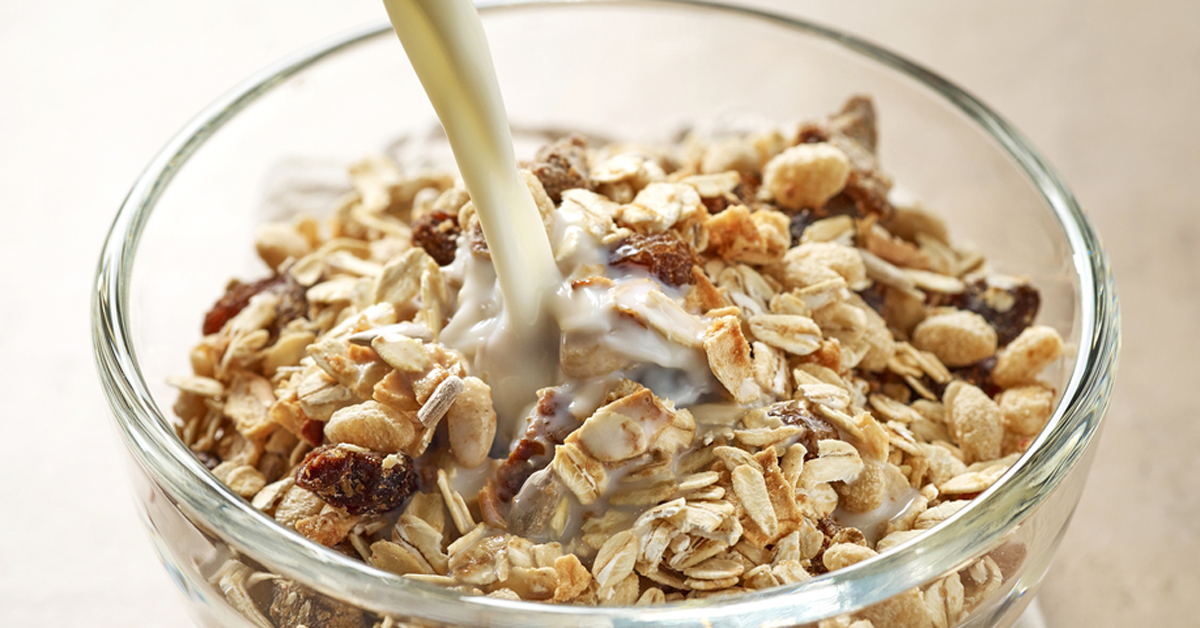
Our Dietary Fibre 101
OK. We admit that as health topics go, dietary fibre - and the role that it can play in contributing towards a healthy and normally functioning body – is far from being a glamorous one. And yet, dietary fibre is an important health topic. With a seemingly endless increase of pressure on our time and the proliferation of quick, convenient and very nutrient-poor meals, many of us simply do not get enough fibre from the food we eat on a regular basis.
But what is dietary fibre?
In a nutshell, dietary fibre is the tiny parts of things like cereal, vegetables and fruit that cannot be digested in the small intestine. Instead, this dietary fibre passes further along in the digestive system before most of it gets broken down by bacterial action in the colon. Increasing dietary fibre – as part of a healthy and balanced diet - can help to soften stools, making them easier to pass and helping to keep the complex cogs of the digestive system moving!
If you would like a more detailed understanding of how the digestive system works then our 'whistle stop tour of the digestive system' will be of interest to you.
And it seems that fibre has an even more crucial role to play, too. The World Cancer Research Fund (WCRF) reckon that dietary fibre is protective against bowel cancer. Around 12% of bowel cancers in the UK are linked to eating insufficient fibre, less than 23 grams a day.
Types of dietary fibre
Dietary fibre is typically divided into two groups:
- Insoluble Fibre:
This is made up of the skins of fruits, the stalks and leaves of vegetables and the husks and hard coats of seeds. Insoluble fibre is more slowly broken down and its bulk helps with the evacuation of stools.
- Soluble Fibre:
This is more completely fermented in the colon, it retains fluid, softening the stools and making them easier to pass.
Many plant components contain both soluble and insoluble components of dietary fibre. For example, the skins of prunes are composed of insoluble fibre and the pulp and juice are composed of soluble fibre
Dealing with constipation
If you do become constipated, it is even more important than ever to aim for at least 5 portions of fruit or vegetables a day. Fibre-packed dried fruits and natural, unsweetened juices can both count towards this target. Just three prunes a day count for one of your ‘5-a-day’ portions!
Highly processed foods are best avoided as these tend to be higher in fat, salt and sugar and are often lower in fibre. Get into the home-cooking habit. Our recipe pages are a great place to look, for healthy inspiration.
The role of fluids
To help to keep things moving, digestively-speaking, it’s important to make sure that you drink plenty of fluid. If you’re actively taking steps to increase the amount of fibre in your diet, be sure to increase the amount of fluid that you drink, too. The body is super-efficient at extracting fluid from the colon when it is needed for bodily functions. And even slight dehydration can lead to harder stools that are more difficult to pass. Six to eight glasses of fluid a day - water or diluted fruit juices are good choices – is a useful rule of thumb.
If you’d like to find out more about the role of dietary fibre – especially if you suffer from IBS with constipation – please do take a look at our booklet. It’s packed with expert hints and tips:
Please Note: Prunes are good for digestion and help keep you regular, when 100g are eaten as part of a varied and balanced diet and an active lifestyle. Always consult a GP if you have any health concerns.
Don’t let your travels upset your tum!
Posted Fri, Jun 11, 21 by Sunsweet
With holiday season well under way, we’ve all heard our fair share of anecdotes about travellers’ tummy troubles. Each of them more “TMI” than the last. But did you know that, by following just a few simple steps, it’s possible to dramatically improve the chances of you – and your family - maintaining good digestive health while travelling?
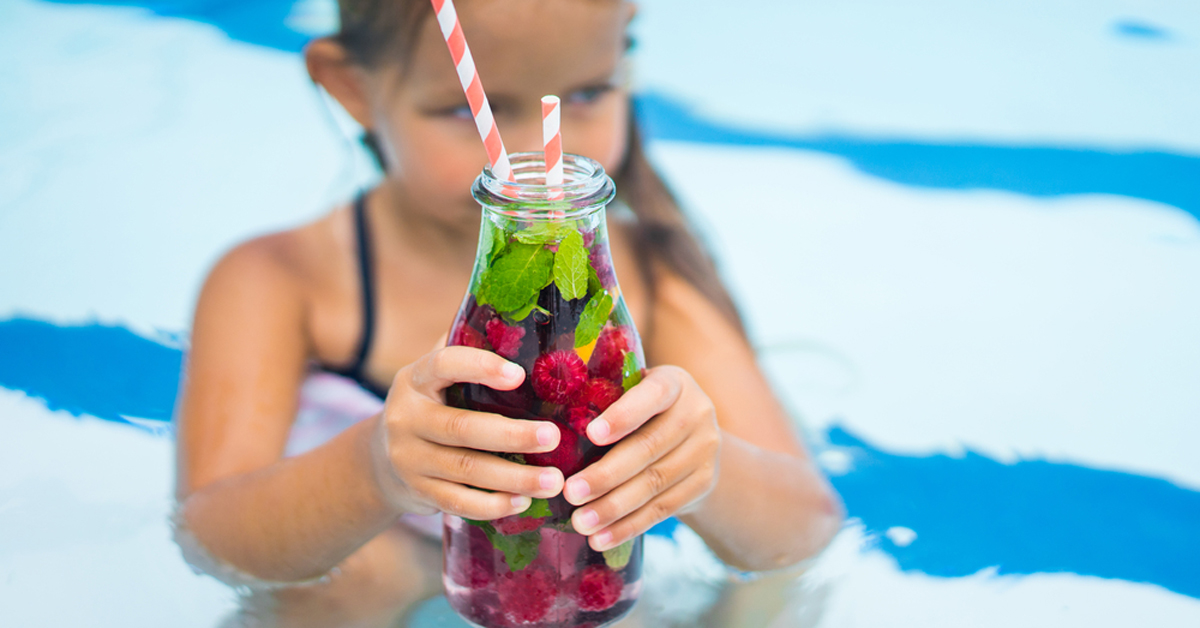
Concerns about food safety issues and the likelihood of subsequent, unpleasant illness. The digestive system getting out of synch. And a relaxed family holiday, memorable for all the right reasons. Are these three things something of a paradox, perhaps, a contradiction in terms? Because a survey by CondéNet and the California Dried Plum Board, found that digestive health problems were far from uncommon amongst holiday-makers.
- More than 75% experienced occasional digestive problems while traveling
- 42% suffered from constipation
What causes ‘travelers’ tummy’?
When travelling, it’s important to be sensible and aware about food safety and health. But you need to balance this caution; becoming paranoid about every morsel could just as easily spoil your holiday!
Simple precautions include:
- Checking if the local tap water is safe to drink. If in doubt, opt for bottled water.
- Holding-off on ice cubes (salads, deserts and drinks) if you think the local water could be an issue.
- Sticking to cooked food that has been freshly cooked and served piping hot.
- Choosing the more popular cafes and restaurants; locals are likely to avoid the duds!
- Using wipes and antibacterial gels - they can be really useful for keeping the family’s hands clean, when you’re on the go.
If you’re unlucky, don’t panic. Take in plenty of fluids. Chamomile and raspberry leaf tea are natural remedies that you can try, to gently relieve diarrhea. And crystallized ginger is said to help alleviate nausea.
And what about the opposite side of the coin, Constipation?
Letting healthy eating habits slip, while on the road. Grabbing convenience food and snacks that are far from optimum, nutritionally. Not getting enough sleep. Not getting enough to drink. Struggling to get used to dramatic changes in temperature. Finding it stressful, the whole experience of being away from home. Getting used to unfamiliar ingredients and new flavours. There are a whole host of reasons why the fine-tuning of the digestive system may end up a little out-of-whack.
"The disruption of one's normal routine/schedule is inevitable when one travels. But eating poorly is controllable by the individual. People really need to look at their food choices either while traveling or at home. They don't realize that there are simple preventative solutions which may help alleviate bouts of digestive discomfort that can occur on the road," says Leslie Bonci, M.P.H., R.D., director of sports nutrition at the University of Pittsburgh Medical Center.
Where possible, include plenty of fresh fruit and veg in your holiday diet. But make sure that you pack some non-perishable dried fruit, too – like Sunsweet prunes. Prunes are known to help maintain good digestive health. And the whole family will love their super-sweet flavour.
Good digestive health – it’s what we do!
At Sunsweet, we’re passionate about good digestive health and we’re more than delighted to share our expert insights. Check out our top four tips for good digestive health and Simple Health Tips for People on the Go.
And – for even more comprehensive info - why not download our Healthy Living Guide ?
Bon Voyage!
Please Note: Prunes are good for digestion and help keep you regular, when 100g are eaten as part of a varied and balanced diet and an active lifestyle. Always consult a GP if you have any health concerns.
Exercise: the “miracle” cure. Tips on how to make it work for you!
Posted Fri, Jun 11, 21 by Sunsweet
They call it the ‘miracle cure’...it’s free, has immediate effect, it’s sociable, fun, suitable for all ages, good weather, bad weather, and, there’s now scientific evidence to prove it can help not only reduce your risk of succumbing to major illness but also help you lead a healthier and ever happier life. It's...exercise! Did that come as something of a surprise?

“If exercise were a pill, it would be one of the most cost-effective drugs ever invented,” so says Dr Nick Cavill, a health promotion consultant.
The many benefits of regular exercise
And it's true that the positive arguments for regular exercise certainly cannot be overstated. People who exercise typically experience health benefits in the following areas, amongst many others, meaning that they can enjoy a healthier and even happier life:
- Digestive health
- Coronary heart disease and stroke
- Type 2 diabetes
- Certain types of cancer
- Osteoarthritis, hip fracture and falls (in older adults)
- Depression
- Dementia
*Source: http://www.nhs.uk/Livewell/fitness/Pages/whybeactive.aspx
How much should we be getting?
Although daily activity is important, adults should generally be aiming for a minimum of 150 minutes of exercise over the course of a typical week. Over the winter though, when the days are short, the weather is lousy and – at Christmas, in particular – the demands on our time are dizzying, it can be all too easy to let healthy habits slide. But spring is the perfect time for a fresh start, to overhaul routines for healthy living, to shake off that sense of winter sluggishness – both mental and physical - and to step towards the summer with confidence, positivity and bags of energy. So what are you waiting for?
5 tips to get you moving!
- Choose something that you really enjoy whether that's running or cycling or bopping around the house like a teenager!
- Team up with similarly enthusiastic people, you'll up the fun quotient and be much more likely to stick to the arrangements that you've made.
- Multi-task. We're all busy, these days, so bundling activities together might help to boost your motivation. Spend time with the kids, exercise the dog and get yourself hot and sweaty by organising a high-intensity kick-about in the park. Roll up your sleeves, pump up the stereo and spring clean the house. You get the idea!
- Make moving your body an integral part of your day-to-day life. If you need to make an extra special effort, you might find that you start to make excuses or that exercise slips off your priority list.
- And finally... Try not to make excuses. Yes, our lives are generally more sedentary these days. Yes, we are increasingly tied to our technology. But if you're not going to take responsibility for your own health, then who is?
Fuel that workout!
For a nutrient-packed and perfectly portable pre-workout snack, why not consider the not-so-humble prune? Naturally sweet, prunes have a low GI meaning that they release their energy relatively slowly to satisfy your sweetie-cravings without giving you the short-term energy rush and sugar-crash of so many other snacks. Prunes are scientifically-proven to help with digestion, a great way to help overcome sensations of inner sluggishness. You might be interested in our Digestion 101, too, to discover more about the health boosting properties of prunes.
Have a happy spring!
Please Note: Prunes are good for digestion and help keep you regular, when 100g are eaten as part of a varied and balanced diet and an active lifestyle. Always consult a GP if you have any health concerns.
Exercising your right to healthy digestion
Posted Tue, Jun 08, 21 by Sunsweet

Any exercise, as long as it is not to the extreme, will increase intestinal contractions and improve your digestive health. Getting your outside moving tends to get things moving inside too.
But not all exercises were created equal and some are better for your digestive health than others. Regular moderate intensity physical activity – such as walking, cycling or participating in sports – has significant benefits for health. It can, for instance reduce the risk of cardiovascular diseases, diabetes, colon and breast cancer, and depression. Even simple changes to the way you go about your daily life such as taking the stairs instead of the lift can help you and your digestive system to move more.
Exercises considered good for digestion
All exercise is good for your internal and external fitness, and according to the World Health Organisation, adults should get a minimum of 150 minutes of moderate intensity aerobic exercise every week. Depending on an individual's relative level of fitness, examples of moderate physical activity could include: brisk walking, dancing or doing the housework. Some exercises in particular are considered more beneficial for your digestive health. So if you are trying to improve your inner as well as external fitness, make sure to include some of the following into your weekly regime:
Aerobic Activities
As aerobic exercise increases the blood flow to all the organs of our body it also increases the blood flow to the digestive tract. The increased blood supply to these areas results in greater intestinal contractions, which in turn releases more digestive enzymes. This makes it easier for food waste to move through the colon and out of the body.Post dinner walk
A gentle walk after your main meal is a great habit to get into as it encourages the circulation of blood and oxygen around the body helping to keep things moving inside as you move gently outside. Even if you have no other exercise planned for the day, include at least a 30 minute walk after lunch or dinner. Your digestion will thank you for it.Yoga – standing and inverted poses
If you think of yoga like a massage for your insides you can imagine how good your body feels after you put it through some simple positions. Quite apart from its proven stress boosting benefits, certain standing poses and inverted yoga poses in particular are good for digestion. If you don't have a class near you or cannot commit time wise, buy a beginners DVD or download an app to get started.
With all exercise be mindful of the fact that digestion does take quite a bit of energy and therefore make sure to allow adequate time after meals before starting exercise. Remember also to always listen to your body's signals, in particular when embarking on a new exercise regime. Your body is a highly tuned machine – if something is not working well – it will let you know! If you find that one type of exercise doesn't suit you or your digestion, you might consider a different type of exercise such as cycling or swimming until your digestive health is in better shape, and then try it again.Note: This information is not intended as a substitute for consulting with your Doctor.
Harvest time with Sunsweet!
Posted Thu, Aug 31, 17 by Sunsweet
As summer begins to draw to a close, the thoughts of many of us will be turning towards the harvest, towards reaping the benefits of what we have sown. Whether that’s harvesting in a literal sense, like gathering the fruit and veg that we planted in the spring. Or harvesting in a more metaphorical sense, like benefiting from the healthy routines that we put in place earlier in the year.

Although the months when harvest-time takes place vary, depending on where you are in the world, the word itself comes from the Old English hærfest meaning the period between August and November, the autumn. In the USA, Thanksgiving is held on the fourth Thursday in November. But in Britain, Harvest Festivals are traditionally held on the Sunday closest to the Harvest Moon. The Harvest Moon is the full moon that falls closest to the autumnal equinox and it’s usually towards the end of September.
Whenever they take place, though, the festivals are the perfect time to express gratitude for the abundance of fresh and healthful foods that are available to us. They’re a wonderful reminder to get together with friends and family – whenever we have the opportunity - for feasting and for fun. But amid the celebrations, there’s a more serious side too. Many countries have a long-standing tradition of remembering those less fortunate, at harvest-time, of sharing the abundance that many of us are lucky enough to be able to take for granted.
At Sunsweet, we have a century-long heritage of planting, tending and harvesting and somewhere in the region of 300 farmer members share their knowledge about cultivation with their peers. By late summer, our orchards in California are ready for harvest. Finally! This follows:
- The 4 to 6 years that the growers must wait before their trees bear fruit.
- The spring, when the orchards become covered – so fleetingly - in a fragrant blanket of white blossom.
- The summer, when growers must irrigate the orchards – via an extensive network of reservoirs - using water from the Sierra Nevada Mountains.
The plums that become prunes are tree-ripened. Experienced growers can determine the optimum time for harvesting by assessing the fruit’s firmness and sugar content. Harvesting, helped by a machine that gently shakes each tree trunk, ensures that the tree-ripened plums never touch the ground, and this marks the end of the crop cycle for our growers.
We’ve created a super-interesting video that shows the Sunsweet harvest. And our website is packed full of fascinating facts about all things prune-related. Why not check them out?
Please Note: Prunes are good for digestion and help keep you regular, when 100g are eaten as part of a varied and balanced diet and an active lifestyle. Always consult a GP if you have any health concerns.
Make friends with technology
Posted Fri, Jun 11, 21 by Sunsweet
In the last decade, our use of the internet has skyrocketed. It’s been blamed for many things including our increasingly sedentary lifestyles. And yet it remains a significant part of our everyday lives despite all of the negative and downright fear-mongering headlines. But can technology actually have a role to play, in helping us to create balanced, happy and healthy lives?

Despite being a huge part of modern lives, the online world often gets a bad rap. If you believe what you read in the press, we’ve replaced couch potato habits for mouse potato habits – equally sedentary and unhealthy - and spend every spare moment surfing the net. Social media – in all its iterations - has been blamed for poor body image and low self-esteem across the entire range of demographic groups. And there seems to be a grain of truth behind the fear.
In England alone, according to the UK communications regulator, Ofcom, people now spend twice as much time online compared with 10 years ago and it would be safe to assume that it is a similar story all across Europe. Much of that time, of course, is spent immobile. And stats from the medical journal, The Lancet, suggest that inadequate exercise is responsible for more than 5 million deaths globally each year. Sobering stuff.
But is there a silver lining to the techno cloud?
At its very best, the internet offers a diverse resource of up-to-date, educational material that is both entertainingly written and accessible. Much of it is absolutely free. And our blog, of course, is an excellent example! Whether you choose apps or websites, social media or online newsletters, there’s lots of content out there to support you in your quest for a healthier lifestyle. Check out our top 3 techno tips, be selective and get informed.
- Newsletters – Choose reputable sources
Sign up to a couple of lifestyle-related online newsletters. Choose ones from trusted sources, that cover topics that interest you – info overload is not our goal, here – and get inspired with everything from recipes for healthy and speedy mid-week dinners to tips on keeping active, whatever the time of year.
- Workout Videos Online
Don't let good habits around physical activity slip. It’s far better to maintain an exercise programme throughout the year so that it becomes just another part of your daily routine, something that’s as automatic as brushing your teeth. And this is another area where technology can be your ally. Whatever form of exercise you enjoy – from boxercise to yogalates – you’ll be sure to find an online workout that floats your boat. Bung a one-pot-wonder into the oven – remember to keep things healthy! – and, while it cooks, pop on your workout video of choice and get moving.
- Monitoring Fitness Progress
Whether it’s monitoring your daily calorie intake with sophisticated food diaries, tracking your levels of physical activity, learning relaxation techniques like mindfulness or even keeping an eye on your menstrual cycle, there’s an app for that! Speaking to Fox News, Scott Snyder – an innovator in the field – said, “The ultimate goal of most of these apps is to change behaviour. Small changes are a big overall win for health.” We couldn’t agree more!
As with most things, getting a good balance is crucially important. Everything in moderation – including technology – and you won’t go far wrong!
Looking for more inspiration? Why not check out our Healthy Living Guide?
Please Note: Prunes are good for digestion and help keep you regular, when 100g are eaten as part of a varied and balanced diet and an active lifestyle. Always consult a GP if you have any health concerns.
Managing Irritable Bowel Syndrome with constipation
Posted Fri, Jun 11, 21 by Sunsweet
Irritable Bowel Syndrome with constipation is surprisingly common. And with a range of distressing – and potentially life-limiting – symptoms, it's something that you're going to want to nip in the bud. Fast. But don't worry. Help is out there. And there are a number of simple, self-care solutions that might just do the trick.

The Surprising Prevalence of IBS
If you are suffering from Irritable Bowel Syndrome (IBS) you are not alone. According to the IFFGD (*), 10-15% of the World's population suffer from this common complaint. Women, interestingly, are twice as likely to be affected by the syndrome as men. 40% of people have mild IBS, 35% of people have moderate IBS and 25% of people have severe IBS. And yet many people don't recognise their symptoms
(*) International Foundation for Functional Gastrointestinal Disorder
What is IBS and what causes it?
IBS is a condition that relates to symptoms - otherwise unexplained – that affect the digestive system. Symptoms can vary dramatically in their severity and duration and they can also come and go. Although the specific causes of IBS are not clear, psychological factors like stress can be a trigger factor for bringing on symptoms. Diet, food and eating can also affect symptoms with many sufferers noticing that their symptoms appear worse after a meal leading them to speculate about potential food allergies or intolerances. IBS has been subcategorised based on the symptoms: IBS with diarrhoea; IBS with constipation: or mixed, which includes both diarrheal and constipation traits.
Sufferers from IBS with Constipation (IBS-C), suffer from constipation.
Prunes and Normal Bowel Function
Prunes are high in fibre and contribute to normal bowel function when 100g prunes are eaten daily and as part of a varied and balanced diet and active lifestyle. And unlike many juices, prune Juice is a source of fibre.
Managing the Symptoms of IBS-C
The symptoms of IBS-C can often be managed by making dietary and lifestyle changes. People with IBS-C can take steps to alleviate their symptoms by modifying the amount of fibre that they include in their diet. The two main types of fibre are soluble (that the body can digest) and insoluble (that the body can't). Soluble fibre foods include oats, fruit and vegetables. Insoluble fibre foods include wholegrain bread and cereals. If you suffer from IBS-C, it makes sense to try to boost the amount of fibre in your diet and also the amount of fluids that you take in. The IBS Network, in the UK. echo traditional dietary advice for treating constipation and advocate:
- Boosting the amount of fibre in the diet, adding linseed to cereals and so on.
- Eating oats with dried fruit – especially prunes and apricots – for breakfast each morning
- Upping your fruit and veg intake, prunes and beetroot are particularly helpful.
Is there support available for people suffering from IBS-C?
You'll be relieved to hear that there is some excellent support out there. In fact, we've collaborated with The IBS Network UK – the country's national charity for sufferers of the syndrome - to produce a comprehensive, fact-based document packed full of up-to-date info and useful advice about managing IBS-C. The Network aims to facilitate a programme of self-care for sufferers by providing them with good quality information and support.
Why not download the 'Diet for Irritable Bowel Syndrome (IBS) Constipation' booklet to find out about:
- Dietary hints and tips
- The importance of fibre in the management of IBS-C
- Foods to include
- Foods to avoid
- An example of a daily food plan
PS: Looking for more info on digestion-related topics? Check out our Digestion 101.
Please Note: Prunes are good for digestion and help keep you regular, when 100g are eaten as part of a varied and balanced diet and an active lifestyle. Always consult a GP if you have any health concerns.
No Time to work out?
Posted Wed, Jan 23, 19 by Sunsweet
You might not have time to go to the gym or do a fitness class, but that doesn't mean you cannot get fit. The trick is to try and bring fitness into your everyday life and disguise your exercise by doing things you enjoy. Do you like to dance, cycle, walk the dog or does vigorous housework de-stress you? All these things are exercise – they get your heart pumping and burn calories.
So no more excuses, everyone can increase their fitness by incorporating these small changes.

Here are our top ten tips:
- Don't use the "I've no time to go to the gym" as an excuse. Never has home exercise been so accessible or affordable. If you have a games console already, invest in a Wii Fit or chose from one of the multitude of fitness DVD's available. Just 30 minutes 3 times a week would make a big difference to your fitness levels.
- Take public transport and leave the car at home. While it may mean timing your event more carefully, it saves fuel, money and is better for the environment. Also, get off one stop early and walk the rest of the way.
- Remember exercise does not have to mean sport. Housework, shopping or gardening can also count towards your daily exercise intake.
- When you encounter a stairs and an escalator side by side, chose the stairs. Yes it's easier to stand than walk but walking up stairs is a great mini workout to incorporate into your daily routine.
- When going to the cinema, shopping centre or any other place with a large car park, make a habit of parking furthest from the door. In the time spent looking for the "optimum" spot near the door, you will have already walked across the car park and had a little fresh air and exercise.
- Walk! It's free, healthy, weight bearing and can be done anywhere. You don't need special equipment other than sensible walking shoes or runners and can take place from right outside your front door.
- Don't waste your precious time going to an expensive gym on the edge of town. Find a local class near you by looking at the list of events in your local community centre or church hall. As well as getting fit, you may even get to know some of your neighbours as you salsa, step or zumba together.
- Find a fitness buddy. Instead of catching up with friends over a coffee, tie those laces, put on those jackets and walk and talk.
- Forget the car for short journeys - make a habit of walking to your local shop, school or friend's house.
- Create more time. If you truly feel that you have no extra time for exercise, then create some! Get up a half an hour earlier, or turn off your television in the evening for a half an hour or make a decision to go to bed a little later after your evening walk.
Positive steps towards maintaining a healthy weight
Posted Fri, Jun 11, 21 by Sunsweet
If you believe the headlines, obesity has reached epidemic proportions. Our kids are fatter than ever. Adult health is being negatively affected by expanding waistlines with the results being a greater propensity for cancer, heart disease, diabetes. It’s enough to make you reach for a chocolate bar. But hold that thought! It’s never too late to do something positive about weight management.

Comfort Eating
The links between stress, comfort eating on high-fat, sugar-laden foodstuffs and subsequent weight gain cannot be ignored. According to a study by the American Psychological Association, a quarter of Americans rate their stress level – on a ten-point scale - as 8+. And stress certainly seems to have an adverse impact on our food preferences. When the going gets tough, we reach for the buns! And, when we’re stressed, we also sleep less, exercise less and drink more alcohol. None of which are great for the waistline.
Researchers at Harvard University offer a trio of common-sense tips for countering stress:
- Meditation: The practice will help you to become more mindful of your moods and better able to make healthy food choices.
- Exercise: Activities like yoga and tai chi combine exercise and meditation – a win-win!
- Social support: A listening ear, when you need to offload, from a supportive member of your network of contacts – choose that ear wisely, it could be a friend, a family member or colleague – can also help to alleviate the symptoms of stress.
Removing Temptation
A sensible step when it comes to weight management is – wherever possible - removing temptation. Having your favourite comfort foods on tap is just asking for trouble. Stock up on fresh fruit and veg. Replace biscuits and crisps with dried fruit and nuts. Swap fizzy drinks for juices with no-added sugar. A few simple switches could make a world of difference.
How can Prunes Help with Weight Loss?
Prunes are sweet, really tasty and versatile – whether eaten straight from the pack or as a flavourful addition to a favourite recipe. But you might be surprised to read that, according to research by the University of Liverpool, eating prunes can actively help to boost weight loss.
The University’s study of 100 people (men and women) tested whether, over a 3-month period, eating the fruit - as part of a weight loss diet - helped or hindered weight control. The results were interesting, discovering that the prune eaters experienced greater weight loss than the control group during the last four weeks of the study and - after week eight – experienced greater satiety. They felt fuller. Dr Jo Harrold, who led the research, said: "Prunes may be beneficial to dieters by tackling hunger and satisfying appetite; a major challenge when you are trying to maintain weight loss."
Be Prepared!
With a well-stocked fruit bowl, a selection of dried fruits and some natural juices to hand, a healthy snack is never too far away. Smoothies are sweet and satisfying and can be whizzed up in seconds. And a handful of prunes – enjoyed on their own – couldn’t be more convenient. You can check out our recipe pages too, for lots of healthy inspiration!
PS: Did you know that prunes can be included in a wide range of special diets? Whether you are gluten intolerant, diabetic, a vegan or a vegetarian, you can find out more about the health benefits of prunes, here on our FAQ pages
Please Note: Prunes are good for digestion and help keep you regular, when 100g are eaten as part of a varied and balanced diet and an active lifestyle. Always consult a GP if you have any health concerns.
Spring into a Healthier Lifestyle
Posted Fri, Jun 11, 21 by Sunsweet
Spring has well and truly sprung and the Easter holidays are very nearly upon us. This is a time of year when many of us - over the long, bank-holiday weekends - can take a well-earned break and enjoy the (hopefully!) improved weather. There really is no better season than the spring for laying new foundations for a healthier lifestyle for the months to come.

Outdoor Fun
The onset of brighter and warmer and longer days makes the great outdoors feel even more appealing than ever. Having the support of your friends and family is a very strong motivator for getting – and staying – active. But, let’s face it, getting active with a gaggle of buddies is just more fun! Exercise really doesn’t feel like exercise when it involves gathering together a fun-loving group – the more the merrier - and larking about outside. All you need to do is tailor your activities to suit the age and agility of your group and get stuck in. From horse-riding to hide and seek. From golf to geocaching. From tree-climbing to tennis. From surfing to sand-castle building. The only real rules? Have lots and lots of fun!
Our top three tips for alfresco exercise:
- Ring the Changes:
Get together with your getting-active group – ahead of time - to brainstorm ideas for activities, to keep things fresh and fun.
- Get Scheduling:
Synchronise calendars, set a date and a time and stick to it – no matter what the weather. A few spots of rain should definitely not stop play!
- Fuel the Fun:
There’s nothing like exercising out-of-doors to work up an appetite! Why not check out our recipes pages for a whole host of yummy and portable, prune-related ideas?
Rainy Day Activities
And if the weather lets you down? Buzz on over to our Easter section where you’ll find a trio of Easter-themed projects to choose from. Kids of all ages will just love our colourful craft activities. There are printable templates and easy-to-follow instructions to create Baby Chick Easter Decorations, Bunny Rabbit Pen and Pencil Holders and Bunny Boxes. And if you find yourself with some spare time over the bank-holiday weekend? You could always rustle up a batch of sweeties – check out our recipe pages for inspiration – and present them, as gifts, in one of our Bunny Boxes.
Suffering from ‘tummy trouble’ and a sluggish digestion? Prunes can help!
Posted Fri, Jun 11, 21 by Sunsweet
For whatever the reason, when the digestive system gets out of whack the entire body can start to feel its effects. Lethargy. Bloating. Sluggishness. And even some pretty acute pain. There's good news, though. A sluggish digestion doesn't have to be endured, as just 'one of those things'. There are lots of tips for you to try, here. And the even better news? They're easy!

The discomfort and inconvenience of suffering from digestive problems, especially when you have previously been able to take a healthy digestive system for granted, can be tough to handle. There are lots of different factors that can affect digestion; from experiencing busy and stressful periods in your life, to hormonal changes triggered by pregnancy, to the natural and inevitable physical changes that go hand in hand with the aging process. Whatever the reason, if the digestive system has become chronically sluggish the entire body can wind up feeling below par, as a result.
The aging process
Digestion problems can crop up at any life stage and at any age. But according to the online medical resource, WebMD almost 40% of older adults have at least one digestive issue annually. Constipation is one of the more commonly-cited digestive complaints and with sufferers experiencing symptoms like the ones listed below, it really is no joke:
- Reduced frequency of bowel movements
- Sensations of sluggishness and bloatedness
- Painful bowel movements
- Increased risk of developing piles
Common conditions
Constipation can be caused by a whole host of factors including age-related changes in the digestive system, medication and the effects of undertaking reduced levels of physical activity and not drinking adequate fluids or eating enough fibre.
Gastroesophageal Reflux Disease – a condition that can be responsible for causing unpleasant and even painful symptoms like heartburn - is pretty common, too. The condition can be exacerbated by eating rich foods, by eating late at night and by generally eating too much because being overweight can be a trigger for the onset of the condition's symptoms.
As you age, it's important to schedule regular health checks with your doctor to discuss any symptoms that might worry you. And, of course, any sudden changes in your body should always be thoroughly investigated by your GP. As with many issues, though, preventing digestive problems – before they become chronic - is far preferable to having to treat those issues medically.
Now for the good news!
And there's some good news. Because simple and common-sense steps like maintaining a healthy weight by eating well – choosing a diet with plenty of fibre and fluids, for example - and exercising regularly are excellent starting points. Having a good understanding of the digestive basics – like opting for gut-friendly foods - can go a long way towards nipping potential problems in the bud, too. Here are our top 3 digestion-boosting tips for you to try. And they really couldn't be more simple. You can check out a more comprehensive list of easy, digestion-boosting tips, here. And there's even a whistle-stop tour of the digestive system, too!
- Mindfulness at mealtimes: sit up at the table, switch off your phone and savour your food.
- Drink plenty: water, herbal tea and fruit juices are all good choices. Avoid ice-cold drinks at mealtimes, though, they can make digestion sluggish.
- Snack on prunes: they're sweet, super-tasty and a source of fibre and sorbitol.
Here's to maintaining good digestive health, whatever your age!
Please Note: Prunes are good for digestion and help keep you regular, when 100g are eaten as part of a varied and balanced diet and an active lifestyle. Always consult a GP if you have any health concerns.
Tackling Tummy Troubles while Travelling
Posted Wed, Jun 16, 21 by Sunsweet
Tummy troubles are no joke, especially when you’re travelling and especially when you have small kids in tow. But are digestive complaints - like constipation – just “one of those things” when the family is on the move or are there some simple steps that you can take to nip any potential problems in the bud?

For many of us, holidays can mean:
- Taking our eye off the healthy eating ball with far more treats in our diet than we’re used to (and with far less fibre).
- Getting dehydrated. As the sun comes up, temperatures rise making everyone a little hotter – and a little thirstier - than they’re used to. And as the sun goes down, exotic cocktails can be a temptation for the grown-ups in the group. It’s really important to keep fluid levels topped up but – sorry! – alcoholic drinks don’t count.
- Relaxing by the pool rather than swimming the length and breadth of it. All that sunshine can make physical exercise feel like way too much effort.
And that little trio can combine to upset the bodily functions that most of us are usually lucky enough to be able to take for granted, resulting in a sluggish digestion.
Digestion is a complex physical process and when the digestive system gets out of synch, the whole body can feel its effects. Digestive troubles are far from uncommon amongst holiday-makers. That’s according to a survey by CondéNet and the California Dried Plum Board. More than 75% experienced occasional digestive problems while traveling and 42% suffered from constipation.
A sluggish digestion can quickly start to cause physical discomfort and even anxiety. So what can be done? We’ve pulled together our top tips for keeping things moving while you’re on the move.
Choose Well
Make healthy food choices - wherever possible – and make sure you drink lots. Water and diluted fruit juices are both excellent choices as they can quench your thirst and contribute towards good nutrition.
Keep Moving
Make sure that you factor in some daily exercise when your routine changes. Even while you’re travelling, it’s usually possible to move around from time to time. And something as simple as a brief stroll or a quick stretch really can work wonders.
Plan Ahead
Stock up on a selection of healthy, on-the-go snacks to take with you. Prunes, for example, are proven to promote healthy digestion. You can take the fruit with you, wherever you go. And the best news? Prunes are absolutely delicious!
Chill Out
Although it's not usually stress itself that causes health problems – like digestive issues - but how you handle that stress, it’s still important to find ways to unwind that work for you. Don’t forget to enjoy the journey!
Good digestive health – it’s what we do!
At Sunsweet, we’re passionate about good digestive health. Why not check out our top four tips for good digestive health and Simple Health Tips for People on the Go.
And if you’re looking for more comprehensive info, you can download our Healthy Living Guide!
Bon Voyage!
Please Note: Prunes are good for digestion and help keep you regular, when 100g are eaten as part of a varied and balanced diet and an active lifestyle. Always consult a GP if you have any health concerns.
The benefits of a well-stocked store cupboard
Posted Fri, Nov 13, 20 by Sunsweet
When you’re trying to make healthy choices around food, a little advance planning can go a long way. With a well-stocked fridge and store-cupboard and a repertoire of tasty, healthy and simple-to-prepare dishes up your sleeve, you won’t go too far wrong!
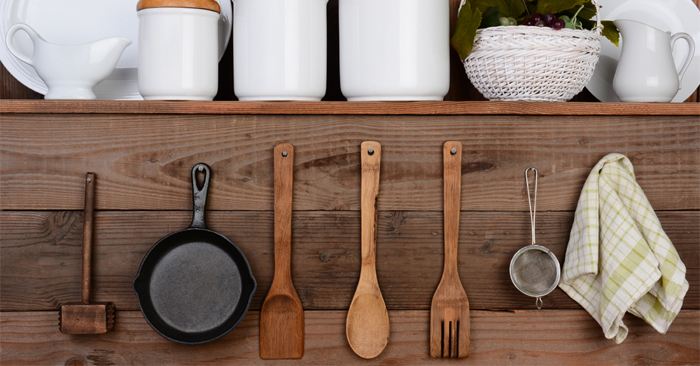
Temptation can be so hard to resist – especially when you’re feeling both tired and hungry. And that’s where healthy snacking comes into its own. Factoring in small snacks between meals can help to keep your appetite in check, your hunger satisfied, and help you to make healthier mealtime choices. Try to have a few healthy, grab-and-go options close to hand. Dried fruit – like SUNSWEET prunes - can be stashed in your desk drawer, your bag or your car’s glovebox so that you’re never too far away from a tasty treat.
Meals that Matter
Breakfast
It’s often described as the most important meal of the day. But it’s a meal that – when you’re up against it, time-wise – can all too often get skipped. Smoothies are the perfect solution for a speedy and nutrition-packed breakfast. Check out our recipe ideas for flavour combos that will suit the faddiest of eaters. And – if you’re really pushed for time – decant your smoothie into a travel cup and sip it on the run.
Lunch
Soup really is the ultimate lunch. Choose your recipe wisely and it’ll go a long way towards your 5-a-day. And, if you’ve a fussy eater in the family, soup can be buzzed super-smooth to surreptitiously deliver those nutrient-packed veggies. Why not take a look at our recipe pages? Most of our soups can be kept in the fridge for a few days or can even be frozen, for another time. Making friends with batch-cooking can be a great way to ensure that a healthy family meal is only ever a matter of minutes away.
Dinner
For mid-week meals, one-pot recipes really come into their own. You could prep the meal together, as a family, to boost that sense of connectedness. The tiniest of tots can wash veg, at the kitchen sink. And then - once your meal is prepped and popped into the oven – you’ll have a nice big chunk of quality time to enjoy together while the enticing aroma of dinner surrounds you.
Bon appetit!
Why not give prunes a go?
Did you know that prunes are surprisingly versatile? They can be used to add a nutritious boost to a variety of family meals - sweet and savoury – and their flavour adds both depth and richness. Try some of our delicious recipes!
Please Note: Prunes are good for digestion and help keep you regular, when 100g are eaten as part of a varied and balanced diet and an active lifestyle. Always consult a GP if you have any health concerns.
There's lots to love about yoga!
Posted Fri, Jun 11, 21 by Sunsweet
Whether you're a man or a woman, a child or a pensioner, whether you're looking for a strenuous workout or a more relaxing - even spiritual - practice, there's a style of yoga to suit you. And don't worry, uber-bendiness and hippy-print harem pants are optional. But the health benefits that you'll experience aren't. From boosting digestion to alleviating chronic conditions, there's lots to love about yoga!

International Yoga Day
The first UN International Yoga Day took place in 2015, in recognition of:
- The holistic benefits of the practice and its compatibility with the principles and values of the United Nations
- How crucial it is for us all to make healthy lifestyle choices and to develop habits that support our physical and emotional wellbeing
Will you be inspired by this year's event – on the 21st June – to give yoga a go?
History
The idea of an International Yoga Day was first mooted by the United Nations after a compelling proposal from Indian Prime Minister Narendra Modi. In his proposal, Modi stated that, “Yoga is an invaluable gift from our ancient tradition. Yoga embodies unity of mind and body, thought and action ... a holistic approach [that] is valuable to our health and our well-being. Yoga is not just about exercise; it is a way to discover the sense of oneness with yourself, the world and the nature.”
The Health Benefits of Yoga
The World Health Organization has implored member states to take steps to address the growing inactivity of individual citizens – an unhealthy trend that is a key risk factor in diseases like cancer, diabetes and cardiovascular disease.
According to the Mayo Clinic, a non-profit committed to clinical practice, education and research - the potential health benefits of yoga include:
- Stress reduction, a better night's sleep, improved mood and an enhanced sense of well-being
- Improved fitness, balance, flexibility and strength
- Management of chronic conditions like heart disease and high blood pressure
Something for Everyone
Whatever your age or ability level, there's a yoga style and approach that is just right for you. From active kids who need an opportunity to wind down, after a hectic day juggling school, homework and after-school activities. To elderly people and those who are less mobile and would appreciate the mind, body and spirit benefits of a gentle armchair practice.
Here are a few of the more popular styles:
- Hatha yoga is a foundation of all yoga styles and can be a good choice if you're looking to improve flexibility. It’s controlled breathing can help improve oxygenation of the body and alleviate stress.
- Iyengar yoga: Using Props - belts, blocks and pillow-like bolsters – that assist with correct alignment, it is gentle and can work well for those with an injury or a chronic condition.
- Ashtanga yoga can offer a new challenge for those who already have a decent level of fitness.
- Bikram Toya: Bikram yoga is the favourite of anyone who loves to sweat! The poses are done in a heated room to facilitate the release of toxins and designed to provide a challenging, invigorating, rejuvenating yoga experience.
Whatever style you choose, an initial one-to-one session with an experienced teacher can be really worthwhile, to assess your unique needs and to get you off to the best possible start.
Find yourself a nearby class, get yourself signed up for a course and enjoy the sensations of lightness, ease and relaxation that will surely follow. Bliss!
PS If you're feeling inspired about getting your body moving, why not download our Healthy Living Guide? Good luck!
Please Note: Prunes are good for digestion and help keep you regular, when 100g are eaten as part of a varied and balanced diet and an active lifestyle. Always consult a GP if you have any health concerns.
The Top 6 Questions We’re Asked About Prunes
Posted Thu, Feb 27, 20 by Sunsweet
Everything you ever wanted to know about prunes – and, quite possibly, a little bit more besides - all in one place! Check out our official, super-informative Q&A on all things Sunsweet prune-related. The Top 6 Questions We’re Asked About Prunes.
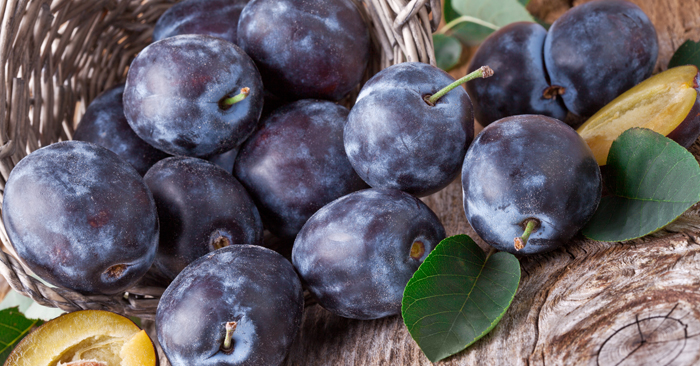
- Are prunes gluten-free?
- Are prunes suitable for people with diabetes?
- Do prunes contain sugar?
- What effect do prunes have on the digestive system?
- What is the connection between prunes and strong bones?
- And, our favourite, just how exactly does a plum become a prune?
Reports suggest that – for a whole host of reasons - as many as one in four of us are now attempting to live gluten free. Gluten is the protein that is found in grains like wheat. And with things like bread, pasta and cereal being such a staple of everyday meal planning, going gluten free isn’t easy. But the good news? All fruit is naturally gluten free and so a serving of prunes or a glass of prune juice can be enjoyed whenever you like. You can even add them to your favourite coeliac-friendly recipes to give them a sweet and fruity twist.
Experts recommend that to keep blood sugar levels steady, we aim for a diet with an overall GI of 50 or less. But, happily, that doesn’t mean that sweet and tasty snacks like Sunsweet prunes are a no-no. Harvard Medical School found that the GI of pitted prunes is around 29 making them a low-GI fruit that doesn't dramatically affect blood sugar and insulin levels.
Prunes contain no added sugar. They are simply dried plums: one plum becomes one prune, just with the water removed. During the plum-prune drying process, sucrose is hydrolysed to glucose and fructose so prunes contain minimal sucrose. And prunes are classed as whole fruit so they can contribute towards achieving your 5-a-day, as well as boosting your daily fibre intake.
For centuries, prunes – and prune juice - have been associated with good digestive health. But now there are scientific findings to support that association, too. Research has shown that - when 100g of prunes are eaten daily, as part of a varied and balanced diet and an active lifestyle – they can assist with normal bowel function just as much as fibre supplements. In fact, prunes should be considered as a first line therapy when it comes to maintaining a healthy bowel.
Research suggests that prunes, due to the nutrients they provide, could be beneficial for bone health. Prunes contain vitamin K and manganese that - among other functions - have direct benefits for bone health. Prunes are also a source of vitamin B6 which helps make healthy blood cells in our bone marrow and maintain normal hormone levels including those involved in bone health.
It’s simple, really. Sunsweet prunes are a special variety of sun-ripened plums that have been dried to remove some of the water. A variety with an exceptionally high sugar content, these "Improved French" variety of plums give Sunsweet prunes their distinctively delicious taste; rich and fruity with notes of creamy vanilla. The dried fruit contains similar levels of nutrients – such as fibre - to fresh plums, while offering the added benefit of year-round availability and a long shelf life.
Please Note: Prunes are good for digestion and help keep you regular, when 100g are eaten as part of a varied and balanced diet and an active lifestyle. Always consult a GP if you have any health concerns.
The top three nutritional reasons to keep loving prunes this season
Posted Fri, Jun 11, 21 by Sunsweet
Did you know that there are lots of compelling reasons why prunes should be top of the class, and not just at back-to-school time? Not convinced? Well, here are our top three seasonal reasons why you – and your family - should be making friends with prunes!

Understandably, you may be reluctant to kiss goodbye to the summer. But, no matter what your life stage, the autumn is an excellent opportunity to embrace that back-to-school feeling, in whatever way you and yours can this year. September is the perfect time of the year to get back to basics, from a health and fitness point-of-view. And, guess what, prunes are a great place to start!
The top three seasonal reasons to love prunes
- You can give your immune system a fighting chance to keep all of those annoying autumnal bugs at bay … with prunes! The dried fruit is a rich source of vitamin B6 and copper, both nutrients are able to help to support a healthy immune system.
- The holiday suitcase is back on top of the wardrobe for another year, the nights are getting longer, darker and colder so it’s not uncommon - or indeed surprising - for your energy and motivation levels to start to take a downward turn. But did you know that prunes can help? Vitamin B6 - which we mentioned above - can help you to feel less tired, it also supports the normal release of energy from foods and the transportation of iron in the body. Copper and manganese – both of which are found in prunes – assist in some of these functions too.
- Prunes have lots of heart health benefits. They’re naturally saturated fat free and reducing the consumption of saturated fat helps to maintain normal blood cholesterol levels. They’re naturally salt-free, too, and reducing the intake of salt helps to maintain normal blood pressure.
There really is a lot to love about prunes!
Want to find out more? Take a look at our online guide to the health-boosting properties of prunes or check out our FAQ
On a more serious note…
Scientific research has been undertaken into the role that prunes can play in potentially helping to prevent serious illness. And a recent study found that eating prunes regularly, may help to reduce the risk of developing bowel cancer.
Professor Dr Nancy Turner Texas A&M University said: “Through our research, we were able to show that dried plums promote retention of beneficial bacteria throughout the colon, and by doing so they may reduce the risk of colon cancer.”
According to the NHS, bowel cancer is one of the most common types of cancer diagnosed in the UK.
That back-to-school feeling
The daily ‘little break’ and ‘big break’ for kids, and adults, are always a challenge but don’t overlook the snacking potential of prunes. With no added sugar, prunes are naturally sweet. And, let’s face it, which child isn’t on the hunt for something sweet the second they walk in the door?! Negotiating playground and office politics is hungry work after all!
Enjoyed straight from the pack, included in the family’s favourite bakes or whizzed into a smoothie, prunes make the perfect lunchbox filler or healthy after-school treat.
You can check out our delicious smoothie recipe suggestions, here:
Please Note: Prunes are good for digestion and help keep you regular, when 100g are eaten as part of a varied and balanced diet and an active lifestyle. Always consult a GP if you have any health concerns.
Tip-top digestion: it’s what everybody wants for Christmas!
Posted Tue, Dec 24, 19 by Sunsweet
Most of us don’t give a second thought to our digestive systems, until they start to get out of sync. And then it’s hard to think about anything else… Be kind to your tum, this Christmas. Tucking into Sunsweet prunes and prune juice is a simple way to start!

OK, we understand that digestion isn’t the most festive of topics. But it’s at this time of year, when the food that we eat gets richer and more plentiful and – apart from dashing frenetically from shop-to-shop - our lifestyles become more sedentary, that we really need to keep on top of things, digestion-wise. Digestion is a complex chemical and physical process and a healthy digestive system can play an important role in our overall sense of well-being. If our digestion gets out of synch, the entire body can feel its effects with symptoms like bloating, reflux, constipation and diarrhoea.
It’s hard not to overindulge at Christmas. Most of us are guilty of stocking up our homes with deliciously tempting – but not always healthy! – food and drink. Traditional yuletide treats are typically low in fibre and they can be richer and more protein-packed than we’re used to, too. This - in combination with a higher intake of alcohol, a lower rate of physical activity and sky-high stress levels - can place extra demands on the digestive system.
Top Tips for Improving digestion
There is good news, though! Read on for some quick tips on improving digestion:
- We know it’s hard but try to take some regular time out of the ‘busy-ness’ to simply relax. Walking with a friend, some gentle yoga stretches, listening to music, whatever helps you to unwind.
- Be mindful of what you’re eating, especially when you’re busy and distracted. Chew well and eat slowly so that you’re more likely to stop eating before you get too full.
- It makes sense to avoid ice-cold drinks while eating, because they can contribute to a sluggish digestion.
- And try eating prunes and drinking prune juice daily!
Why prunes?
For years, prunes and prune juice have been associated, anecdotally, with digestive health. But now there are scientific findings to extoll the benefits of prunes. Prunes help to promote normal bowel function just as well as fibre supplements and they should be considered as a first line therapy when it comes to maintaining a healthy bowel.
So, the inclusion of Sunsweet prunes and prune juice in your everyday diet certainly makes a lot of sense! 100% natural, our products can be enjoyed by the whole family including children, pregnant women and the elderly. Prunes are surprisingly versatile and can add a nutritious boost to family meals at any time of the year. Their flavour can add depth and richness to comfort foods, like tempting mousses and slow-cooked stews. They can even add a fresh and fruity note to salads and smoothies, too.
Please Note: Prunes are good for digestion and help keep you regular, when 100g are eaten as part of a varied and balanced diet and an active lifestyle. Always consult a GP if you have any health concerns.
Try Something New This Christmas!
Posted Fri, Jun 11, 21 by Sunsweet
This year, at Christmas time, why not try something new? Like putting yourself first. After all, you can’t pour from an empty cup! It may be a cliché but it’s no less true because of that. And who knows? If you take a little time out to reflect on what really matters to you - and your family – at Christmastime, you might just make this Christmas your best ever!

Everybody’s priorities are different. A formal feast with fabulous friends is festive heaven for some people. While others prefer a quieter more intimate affair. And, for some, children about the place makes anything elaborate or overly structured just one stress too far.
Decide what’s important to you: is it having a houseful of friends, relaxing with close family or something in between? If you’re honest about what constitutes your perfect Christmas, you’ll give yourself the best chance of getting it!
Letting off steam, on the big day
Don’t overlook the restorative properties of physical activity, even in the midst of all the festivities. With a bit of strategic delegation, you’ll be able to keep even the youngest members of the household occupied while ticking an item or two off your task list. Draw up a list of what needs to be done - from peeling the sprouts to bagging up the wrapping-paper for recycling – and make sure that everyone gets stuck in. There could even be a fun league table with prizes to be won, for “The Most Cheerful Helper” perhaps or “The Speediest Table Clearer”. Have fun together and make sure you’re not shouldering the Christmas workload alone.
Stress and tummy trouble
Digestion is a sensitive process that can be compromised by stress. And – with the best will in the world – Christmas can be stressful! When the digestive system gets out of synch, the whole body can feel its unwelcome effects with symptoms like bloating, constipation and indigestion. But the great news is that prunes can help. They’ve long been associated, anecdotally, with digestive health. But new research suggests that prunes should be considered “a first line therapy” because - when 100g of prunes are eaten on a daily basis - they can help to support normal bowel function. Our Digestion 101 is packed with hints and tips for maintaining a healthy digestive system.
Cultivating an attitude of gratitude
Christmas is a great opportunity for counting your blessings. We know, it can be hard! But research by the University of Berkeley found that being grateful has lots of potential health benefits. It can:
- have a positive impact on our emotional wellbeing and on our relationships
- reduce our likelihood of becoming depressed
- increase our resilience when faced with life's many and inevitable challenges
So take a look at your home and your loved ones, in all their messy, imperfect and beautiful glory, raise a glass and give thanks. Happy Christmas!
Please Note: Prunes are good for digestion and help keep you regular, when 100g are eaten as part of a varied and balanced diet and an active lifestyle. Always consult a GP if you have any health concerns.
We Are What (And How) We Eat
Posted Fri, Jun 11, 21 by Sunsweet
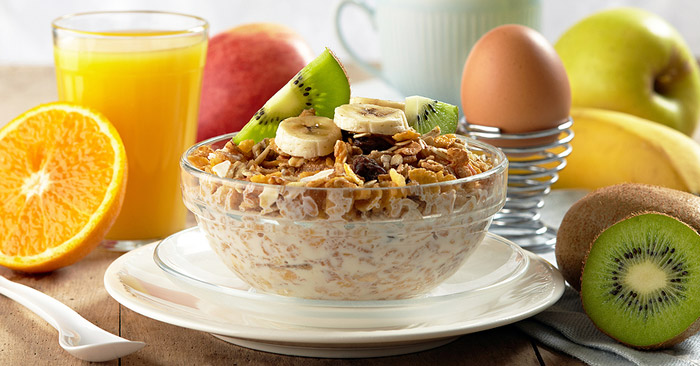
Most of us have heard the phrase “you are what you eat”. However Dr. Nick Read, gives us a fresh perspective on this old saying including - “you are how you eat”.
Professor Nick Read is a consultant gastroenterologist and analytical psychotherapist. He uses both of these disciplines in combination to investigate and treat patients with mind-body diseases, particularly those with functional gastrointestinal disorders.
Dr. Read is currently the Chair of the IBS Network in the UK, an independent charity dedicated to support, inform and advise people with Irritable Bowel Syndrome (IBS).
While encouraging us to make the 5-a-day an integral part of our daily nutrition plans, he also draws our attention to the environment and manner in which we consume food. Relaxation, company and liking what you eat, for instance, all contribute to digestive health and overall well-being.
Maintaining the right fibre intake can also help many of our digestion and bowel problems. Dr. Read recommends natural prune juice (like Sunsweet®) as a nutritious and stimulating addition to the daily diet. It contributes to the veggie and fruit intake and also helps the digestive system.
Watch our Eating and Drinking Well video and hear what Dr. Read has to say about the positive impact of a healthy diet on constipation and his recommendations on natural treatments and preventative measures.






